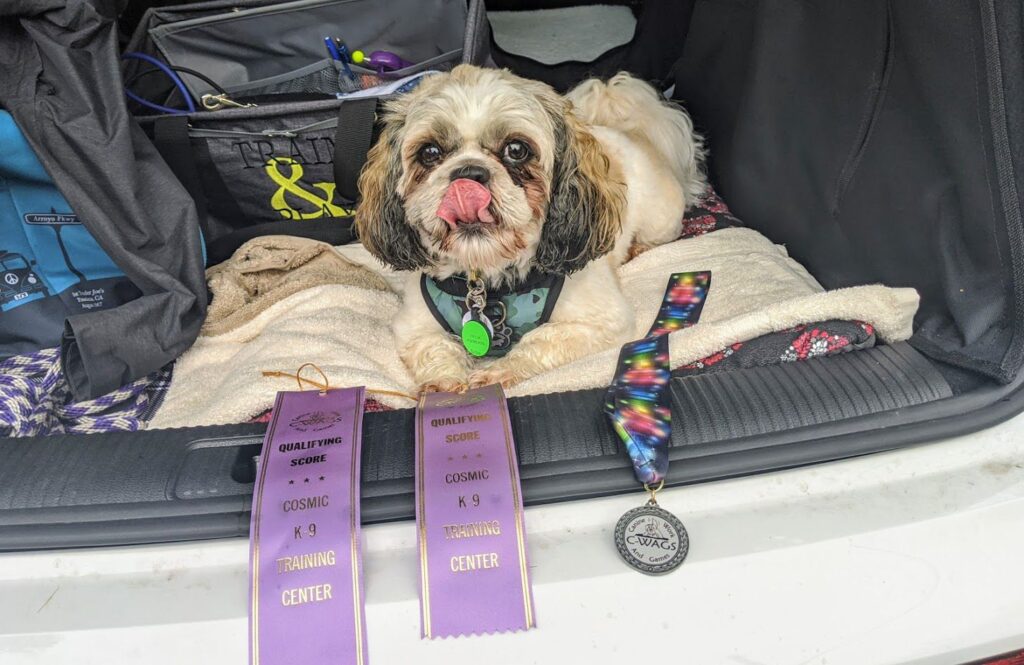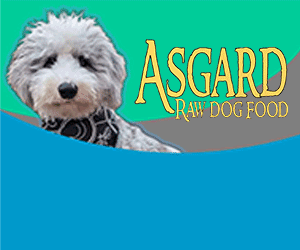Most people know about the specialized dogs that help law enforcement sniff out criminals, drugs, bombs, and search for missing persons. Their sense of smell is so great, they can do searches over water, alert people to medical issues and even sniff out produce or other items that can be smuggled. But did you know it can be a fun game for your dog, just like playing fetch? Dogs instinctively love to smell and discover things and nose work classes can help you learn how to play “sniffy” with your own pet dog.
The same philosophy and principles that are used for foundation work in professional working animals can be used to teach your dog games to play. “We teach a dog to identify a specific odor, search for it, then indicate on that odor,” explains Marcy Fenell CPDT-KA, an instructor of scent work classes at Animal Friends. ”So if you were training a dog to search for drugs, you would teach the dog what to search for and how to tell you they found it. It’s certainly more complicated than this and working scent detection dogs are selected for the work and vigorously trained to be part of the team. You know if you have a dog that could potentially save someone’s life it becomes a lot more important.” Scent work for fun uses a lot of the same techniques for teaching the dogs to search for oils, such as birch, cypress, anise, or clove.
Scent work probably has more benefits than you realize. “It’s great mental work for the dogs. And it’s one of the few things we do with them that allows the dog to lead. Dogs of all sizes and ages are able to participate. The handler cue’s the dog to search, then supports the dog while it sniffs for target odor, then the dog indicates when he’s found it” Marcy says. “It’s great for bonding with your dog and excellent for building confidence with shy or fearful dogs.” Letting the dog have freedom of choice and a loose leash can help the dog feel good about what they are doing. And for some reactive dogs, it can help keep their mind focused and let them get used to being around other dogs while they are searching. The NACSW started nose work training for that type of dog. They provide a very friendly venue to compete in for dogs who may be reactive to other dogs, since they are worked one at a time from the car in NACSW workshops, classes & trials.
Scent work can be great for the handler as well, since it takes the pressure off getting your dog to perform. The dog leads this sport, there is no wrong way for a dog to go about searching. They all have different styles and odor behaves very differently depending upon many different environmental factors. The dog has to find the odor; humans do not have the sense of smell necessary. In typical training classes sometimes people are so intent on having their dog “sit” or “down” on cue that they become nervous, a bit forceful or even discouraged if the dog doesn’t respond right away. During nose work exercises, the person is walking behind their dog while it searches; the dog is leading so the handler is following and there’s no reason to tense, just let the dog lead and have fun. Scent work is similar to solving a puzzle, the dog just figures the puzzle out with their nose. As the dogs advance in training the puzzle becomes more and more complicated. Marcy teaches that a sniffy walk or an enrichment walk is much more enjoyable for the dog, as opposed to a walk at heel where the dog is not allowed to smell the ground. There is certainly a need for a dog to know basic cues, but this sport is a great way for both ends of the leash to just relax, have fun, and build a great bond.
Dogs enjoy doing what’s instinctive, and sniffing is a big part of that. “We take away a lot of things that come naturally to dogs by feeding them from a bowl twice a day, typically at the same time each day. So they don’t get to use many of the behaviors that are innate, “ laments Fenell. A lot of people walk their dogs because they think the dogs only need exercise or want them as a walking partner and don’t want them to stop every few feet. And that’s the dog’s favorite part: smelling the world and working their brains. Dogs get just as tired (if not more so) by mental work than physical work.
There are several levels of nose work to enjoy. For beginners, many places offer classes that help you work with your dog to search using cardboard boxes, an exercise that’s easy for you to learn and practice at home on your own time. And any dog can do it. Marcy suggests that it’s like Sudoku for dogs. “Even short-nosed and older dogs can enjoy it. A French Bulldog or a Shih-Tzu might not be hired as a police dog,” Marcy laughs, “but they can do it!” If you find you and your dog want to move on, there are competitive events you can attend and win ribbons for hard work. Most organizations usually have a minimum one-year age requirement to compete; if you are interested in competition it is best to look into the particular organization that you may want to compete with. The amount of training you need to put in before competing varies depending on many factors, but there really is no reason you just can’t take classes and have fun.
Animal Friends offers a beginning class called The Nose Knows, a more advanced class known as The Nose Knows continues, and the Nose Knows Ninja for those who are interested in competing with scent work games sanctioned by C-WAGS. Drop-in sessions are often offered that may focus on one particular skill such as containers, vehicles, working through distractions, etc.
For those interested in more resources, Marcy suggests looking into these groups: AKC, NACSW, and C-WAGS which offer different options including outdoor work, and locally for indoor training Animal Friends is very dog friendly for beginners and will be a host site for a C-WAGS sanctioned league in April.



